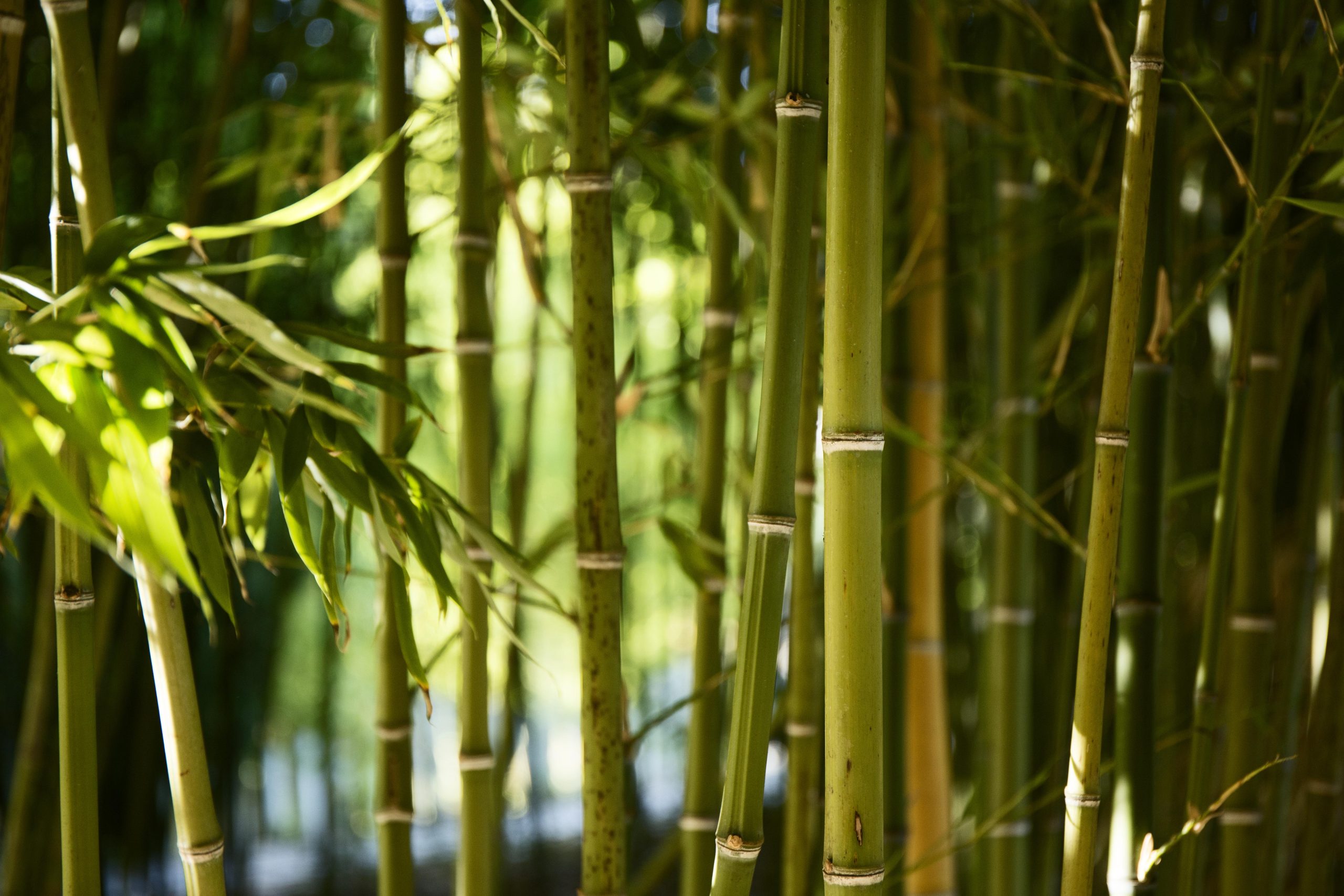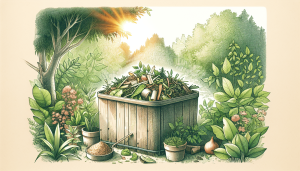In our journey towards a more sustainable lifestyle, we often find ourselves asking about the compostability of various materials, like bamboo. In “Can I Compost Bamboo?”, we delve into the benefits and the process of composting bamboo, highlighting its role as an eco-friendly resource. We explore different types of bamboo products, discuss how they break down in a compost setting, and share tips to ensure successful composting. Through this guide, we aim to clarify any doubts and encourage everyone to make greener choices in waste management. Can we compost bamboo? This question might have crossed our minds at some point, especially as we become more conscious of our environmental footprint. Bamboo products have rapidly gained popularity due to their sustainability, but what happens when these items reach the end of their usable life? Let’s dive into the world of composting bamboo and discover the best practices, benefits, and potential challenges.
Understanding Bamboo
First, it’s essential to understand what bamboo is and why it’s an attractive option for sustainable living. Bamboo is a type of grass that grows incredibly fast and has numerous applications—from construction materials to household items like toothbrushes and cutlery.
Growth Rate and Sustainability
Bamboo can grow up to 3 feet in just 24 hours under the right conditions, making it one of the fastest-growing plants in the world. This rapid growth rate reduces the need for pesticides and fertilizers, leading to a smaller environmental impact compared to other materials like wood.
Variety of Bamboo Products
Bamboo is versatile, and its applications range from flooring to fabric to kitchen utensils. Each type of bamboo product behaves differently once it enters the composting process, making it crucial to understand what we can compost and how.
What Can Be Composted?
Not all bamboo products are created equal when it comes to composting. Some items can be effortlessly added to our compost bin, while others might require a bit more work.
Raw Bamboo
Raw bamboo includes bamboo shoots and any untreated bamboo pieces. These can be easily composted as they don’t contain any chemicals or treatments that could potentially harm our compost pile.
Bamboo Leaves
Bamboo leaves can also be composted, but we should consider shredding them first. Shredding speeds up the decomposition process, enabling the nutrients to integrate into our compost more efficiently.
Processed Bamboo Products
Many products undergo processing or treatment, like laminated bamboo flooring or bamboo fabric. These items might not break down as easily due to the added chemicals or treatments, requiring more effort to compost.
| Type of Bamboo Product | Compostable | Special Instructions |
|---|---|---|
| Raw Bamboo | Yes | Cut into smaller pieces to speed up composting |
| Bamboo Leaves | Yes | Shred for quicker decomposition |
| Bamboo Toothbrush Handles | Yes | Remove bristles, which are often non-compostable |
| Bamboo Flooring | No | May contain chemicals and treatments |
| Bamboo Fabrics | Sometimes | Check for chemical treatments |
Compostability Factors
Various factors influence how well bamboo decomposes in our compost pile. Understanding these factors can help optimize our composting efforts.
Time Frame
Bamboo generally takes between six months to two years to decompose, depending on its size and the composting conditions. Chopping bamboo into smaller pieces can significantly reduce the decomposition time.
Composting Conditions
Proper composting conditions, such as adequate moisture, temperature, and aeration, are essential for breaking down bamboo. Ensuring that our compost pile is well-maintained will help the bamboo decompose more efficiently.
Chemical Treatments
Some bamboo products may have chemical treatments that slow down their decomposition. If we’re unsure whether our bamboo item has been treated, we should consider composting a small piece first to observe its behavior.
How to Compost Bamboo
Now that we understand which bamboo products can be composted and the factors affecting their decomposition let’s explore the best practices to compost bamboo effectively.
Preparing Bamboo for Composting
Preparation is key when composting bamboo. Here’s how we can prepare different types of bamboo items:
Raw Bamboo and Bamboo Leaves
- Chop or Shred: Cut raw bamboo and leaves into smaller pieces or shred them if possible. This increases the surface area exposed to microorganisms, speeding up decomposition.
- Soak: To further accelerate decomposition, we can soak bamboo pieces in water for a few days before adding them to the compost pile.
Processed Bamboo Products
- Check for Treatments: Identify if the bamboo product has any chemical treatments. If treatments are present, it’s safer to recycle or dispose of the item rather than composting it.
- Disassemble: For items like bamboo toothbrushes, remove any non-compostable parts like nylon bristles.
Balancing the Compost Pile
Achieving the right balance in our compost pile is crucial for successful composting. Bamboo is a carbon-rich material, so it should be balanced with nitrogen-rich materials.
| Material Type | Examples | Compost Category |
|---|---|---|
| Carbon-Rich | Bamboo, Dry Leaves, Paper | Browns |
| Nitrogen-Rich | Kitchen Scraps, Grass Clippings | Greens |
A balanced compost pile should have a mix of both browns and greens. Bamboo will contribute to the “brown” component, so we should ensure an adequate amount of “green” materials to maintain a healthy composting process.
Maintaining the Compost Pile
Regular maintenance helps ensure that bamboo decomposes efficiently:
- Turn the Pile: Aerate the compost pile by turning it every couple of weeks. This promotes oxygen circulation and enhances microbial activity.
- Monitor Moisture: Maintain a damp but not waterlogged compost pile. If it’s too dry, add some water; if it’s too wet, mix in dry materials like leaves or straw.
- Check Temperature: An active compost pile generates heat. Ensure the pile is maintaining a temperature between 120°F and 160°F to facilitate microbial activity.
Benefits of Composting Bamboo
Composting bamboo offers numerous benefits, both for our gardens and the environment.
Environmental Benefits
Composting bamboo reduces waste sent to landfills, lowers methane emissions, and recycles valuable nutrients back into the soil. By composting, we support a circular economy and contribute to environmental sustainability.
Soil Health
Composted bamboo enriches the soil with essential nutrients and organic matter, improving soil structure, water retention, and fertility. This makes our garden more productive and helps plants grow healthier.
Cost Savings
Producing our compost reduces the need for commercial fertilizers and soil conditioners, saving money in the long run. Additionally, it provides an efficient way to manage household waste sustainably.
Challenges and Solutions
While composting bamboo has numerous benefits, it also presents certain challenges. Let’s address some common issues and their solutions.
Slow Decomposition
Bamboo can take longer to decompose than other organic materials. To speed up the process:
- Chop and Shred: As mentioned earlier, cutting bamboo into smaller pieces accelerates decomposition.
- Maintain Compost Quality: Regularly aerate and monitor compost pile conditions to support microbial activity.
Chemical Treatments
Processed bamboo products with chemical treatments can hinder composting efforts. To manage this:
- Identify Treatments: Avoid composting treated bamboo items and seek eco-friendly disposal options.
- Choose Sustainable Products: Opt for untreated or minimally processed bamboo products to ensure compostability.
Limited Space
For those with limited composting space, bamboo’s slow decomposition might be problematic. Alternatives include:
- Community Composting: Join local community composting programs that accept larger materials like bamboo.
- Vermicomposting: Use a vermiculture bin for smaller, bamboo-based items like shredded leaves.
FAQs about Composting Bamboo
To address common queries and enhance our understanding, let’s dive into some frequently asked questions about composting bamboo.
Can I compost bamboo toothbrushes?
Yes, bamboo toothbrush handles can be composted after removing the non-compostable nylon bristles. It’s best to cut the handle into smaller pieces to expedite decomposition.
How long does it take for bamboo to decompose?
Bamboo generally takes six months to two years to decompose, depending on its size, preparation, and composting conditions. Smaller, well-prepared bamboo pieces decompose more quickly.
Can I compost bamboo cutlery?
Yes, bamboo cutlery can be composted as long as it hasn’t been treated with chemicals. Cut the pieces into smaller sizes to aid the composting process.
Is bamboo safe for my compost pile?
Raw or minimally processed bamboo is safe for composting and beneficial for our compost pile. However, avoid composting treated bamboo products, as chemicals can disrupt the composting process.
Are bamboo fabrics compostable?
Bamboo fabrics can be composted if they are free from chemical treatments. Check the fabric’s compostability by researching or contacting the manufacturer.
Can I compost bamboo flooring?
No, bamboo flooring generally contains adhesives and treatments that make it unsuitable for composting. Explore recycling options instead.
Conclusion
So, can we compost bamboo? The answer is a resounding yes—but with some caveats. While raw bamboo and untreated bamboo products are excellent additions to our compost pile, processed items may require additional research to determine their suitability. By understanding the types of bamboo, preparing them correctly, and maintaining a balanced compost pile, we can successfully compost bamboo and reap the benefits for our garden and the environment.
We hope this comprehensive guide has answered all your questions about composting bamboo. With these insights, we can make informed decisions and promote sustainable living practices. Let’s embrace the power of composting and make a positive impact together!




